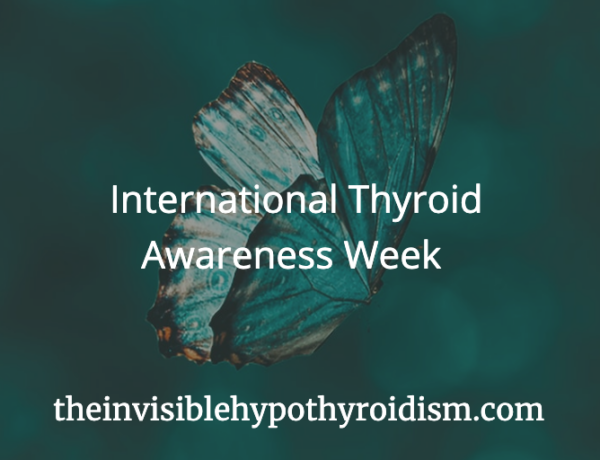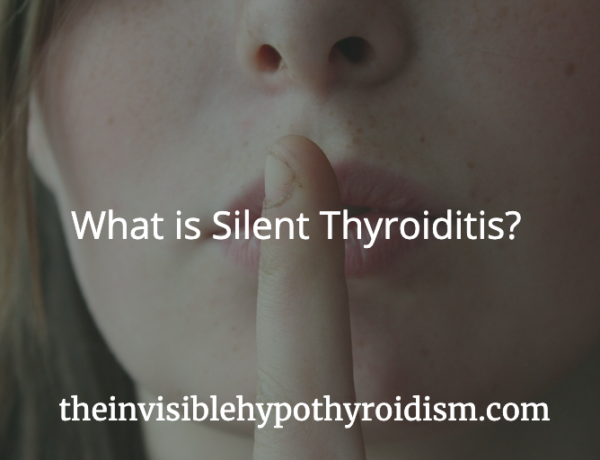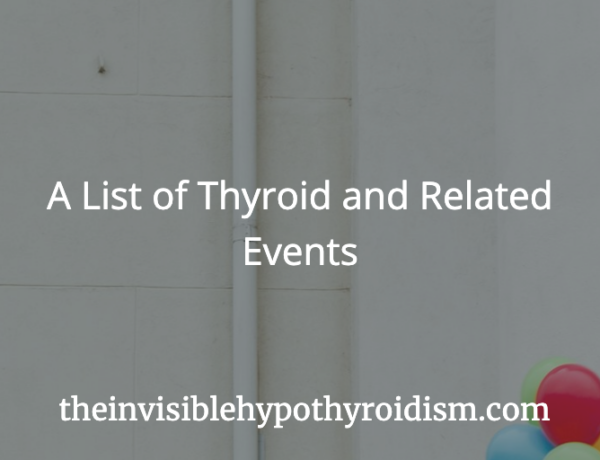Originally published on 21st May 2016 Last updated on 5th April 2024
There are certain supplements that support thyroid function and maintaining optimal levels. It’s important to consider other possible problems, so not just your thyroid, such as low vitamin levels and other health conditions that can cause symptoms similar to hypothyroidism.
Supplementing may help with symptoms.
This article also talks about which supplements we might want to avoid!
There are no supplements that we should all supplement. It all comes down to individual needs.
I would always recommend consulting your doctor, pharmacist, a medical professional etc. before making any changes to your health regimen. It can be dangerous if you take supplements and already have high/sufficient levels. Of course, all pregnant women should be especially careful and consult a medical professional.
Although I have qualifications in diet and nutrition, I’m not medically trained.
None of the linked supplements below are endorsed or recommended by myself either. They are there for information and as examples.
If you’re gluten, soy or dairy-free, or have any other restrictions, do also always check that all supplements you take are free of the substance, too.
Most Vitamins Can Be Tested via Doctors’ Tests to Learn Your Levels.
However, you can also order many tests online too.
Supplements Worth Considering and Testing For:
1. B Vitamins / B-Complex – (B1, B2, B3, B6, B12)
These can help with tiredness, fatigue, metabolic function and support adrenal health and function. Vitamin B12 and folic acid (B6) are both important for energy and heart protection. Folic acid is also good for preventing neural tube defects in a developing baby. It is also needed in order to make TSH.
B3 is needed to keep all the body’s cells (including the endocrine glands) in efficient working order.
People with hypothyroidism may struggle to absorb B12. A lack of B12 can cause mental illness, various neurological disorders, neuralgia, neuritis and bursitis.
You can find a B12 supplement online rather easily.
Testing: US B12 test option here and UK option here.
2. Iron
For many thyroid patients, low iron levels can cause fatigue, heart palpitations, aches and pains and a lack of stamina.
Iron is central to the production of both red blood cells and thyroid stimulating hormone (TSH). Iron is also important for your thyroid health as it makes the hormone T4, and converts T4 to T3. [1], [2]
Always have your levels tested before taking a supplement as taking extra iron can be dangerous.
Bisglycinate is a popular type of iron as it doesn’t cause stomach issues or constipation.
Testing: US iron test option here and UK option here.
3. Vitamin E
An antioxidant, vitamin E is a fat-soluble vitamin important for many processes in the body, including producing TSH.
One example: Vitamin E Capsules.
4. Selenium
Selenium supports the conversion of storage hormone T4 to active thyroid T3. Without it, T3 cannot be produced in the right amounts, and organs will function as if they are hypothyroid even though blood test levels are ‘normal’.
It has also been shown to lower thyroid antibodies. [3]
5. Vitamin C
Essential for the immune System and adrenals. The adrenal gland contains the highest concentration of vitamin C in the body. Vitamin C plays a crucial role in both the adrenal cortex and adrenal medulla, which are responsible for responding to stress.
6. Iodine
A controversial one, many say you should only supplement iodine if you are definitely low in it, as it can do more harm than good if not. Sufficient iodine is needed to make thyroid hormone T4.
A note on sea kelp supplements (which I am asked about A LOT):
Rich in iodine, Sea Kelp is often promoted as a “thyroid booster”, due to iodine’s role in making T4, however, kelp supplements can be dangerous, especially in pregnant women, due to the amount of iodine being very variable, which can lead to excessive iodine intake.. very damaging to the thyroid gland.
So for those with a thyroid condition, this excessive intake can make your condition much worse. It’s a very fine balance, and one we are much better obtaining through our diet. For example, dairy, eggs and fish are all good sources of iodine, and if you eat these fairly often, you are likely to be getting enough iodine. If you do not, your doctor may recommend a low dose iodine supplement to support you. But do not guess with this one. I’ve heard from many of you who took iodine supplements and ended up in a much worse place.
7. Vitamin D3 and A
Good for joints and fatigue, a deficiency in Vitamin A or D can also stop T3 from correcting your metabolic rate and so leave you with low energy, cold intolerance and weight gain.
Vitamin A must be accompanied by protein to make it available to the body, so if you are on a low-protein diet, you may be deficient in this. If you are low on Vitamin A, your ability to produce TSH is limited. This vitamin is required by the body to convert T4 to T3.
Vitamin D has also been shown to lower antibodies. [4]
A popular vitamin D supplement can be seen here.
Testing: US Vitamin D test option here and UK option here.
8. Vitamin K2
You should always take Vitamin D with Vitamin K2. K2 regulates calcium in the blood, so combining Vitamin K2 with Vitamin D3 is highly recommended because of the synergy between the two vitamins.
Research shows a slower progression of calcification in those taking both Vitamin K2 and Vitamin D compared to those taking Vitamin D alone. [5]
9. Zinc
Needed in order to make TSH, research has shown that both hypothyroidism and hyperthyroidism can result in zinc deficiency. It also plays a role in the functioning of the immune system. Low zinc levels have been found to be common in obese people. Zinc is needed to convert T4 into T3.
10. Fish Oil / Omega 3 / Cod Liver Oil
Cod Liver Oil is one of the best sources of omega 3 fatty acids (EPA and DHA) and contains relatively high amounts of Vitamin A and D. Good for lowering high blood pressure, reducing risk of osteoarthritis and maintaining joint and bone health.
You can find it on Amazon here: Omega 3 Fish Oil 1000mg
11. Magnesium
Needed in order to make TSH and for the conversion of T4 into T3, it seems that a diet high in refined food and caffeine will encourage magnesium loss. Magnesium can also help cramps, energy and aches and pains.
Magnesium Malate and Chelate seem to be the most popular among thyroid patients, so I’ve provided a link to Magnesium Malate here: Magnesium Malate
12. Probiotics
Probiotics provide ‘good’ gut bacteria that can improve overall gut health and strengthen the immune system.
There are tablet/capsule forms like this one for example and Kefir (drink form): Kefir Drink
13. Bone broth
Bone broths are easy to make at home, but if you struggle to find the time, like myself, this one is a good option to buy readymade.
Bone broths may be helpful in treating gut issues, because the collagen may help to heal the gut wall and aid digestion. The protein also helps to build or maintain muscle. They can also help with inflammation such as aches and pains in the joints and muscles.
14. Digestive Enzymes
Digestive enzymes can be brilliant for improving gut health and absorption of vitamins and minerals from food, encouraging regular bowel movements and more.
***
Is There One Really Good Multivitamin That Incorporates All That is Needed in an Effective Dose?
We’re often advised against multivitamins, as the amount of each vitamin contained in them is usually so small, that it doesn’t do an awful lot. Or we’re told to avoid them because different vitamins can cancel each other out when taken together (or affect each other’s absorption).
However, my functional medicine practitioner had me take a pregnancy multivitamin which she said were the best kind to take if you have to (i.e. due to finances).
What Supplements Do I Personally Take?
Many have asked what I specifically take day to day but it changes so often, that I couldn’t keep you continually updated. Supplements are not intended for lifetime use, so a practitioner should be continually reviewing what you do and don’t need. Our needs change over time.
Are There Any Supplements NOT Recommended for Thyroid Patients?
There are some supplements in particular which those with hypothyroidism and / or Hashimoto’s are often warned against. As well as the obvious – not supplementing anything you definitely do not need (and extra attention being given to iron and iodine on this for example) – we are also advised against “thyroid support supplements” or “thyroid complexes”. This is due to them often containing things we should be wary about consuming, such as iodine, but also that they sometimes contain animal thyroid glandulars, too.
There is a paper called “Over-the-counter-drug-induced thyroid disorders” which covers the risks of over-the-counter thyroid supplements when we do not need them (particularly with iodine). [6]
Taking supplements with iodine or glandulars in can cause you to have too much thyroid hormone in your body and lead to over-treatment / hyperthyroidism. You should also bear in mind that the amounts may not be consistent. This is potentially very dangerous. The amount of thyroid hormone being taken orally to correct hypothyroidism is a very delicate and sensitive balance.
We should also be wary of kelp supplements, turmeric, ashwagandha, and ‘adrenal support supplements’ for similar reasons given to the thyroid support supplements. Some supplements can make autoimmune conditions worse and flare up Hashimoto’s.
Melatonin in supplement form is also often seen in online forums, as this hormone can be used short-term to improve sleep, However, it is prescription-only in the UK and is contraindicated for autoimmune conditions as it can stimulate the immune system. [7], [8]
Always consider having any supplement you’re looking at ran past a doctor or pharmacist first. Your body has individual needs and ‘natural’ doesn’t always mean safe.
See also:
 The book Be Your Own Thyroid Advocate: When You’re Sick and Tired of Being Sick and Tired, which gives you more need-to-know thyroid patient information like this article!
The book Be Your Own Thyroid Advocate: When You’re Sick and Tired of Being Sick and Tired, which gives you more need-to-know thyroid patient information like this article!
References:
[1] https://www.ncbi.nlm.nih.gov/pubmed/30208979
[2] https://www.ncbi.nlm.nih.gov/pubmed/16602928
[3] https://www.ncbi.nlm.nih.gov/pubmed/11932302
[4] https://www.ncbi.nlm.nih.gov/pubmed/27186560
[5] https://www.healthline.com/health/calcification
[6] https://pubmed.ncbi.nlm.nih.gov/23529350/
[7] https://www.nhs.uk/medicines/melatonin/
[8] https://www.nhs.uk/medicines/melatonin/who-can-and-cannot-take-melatonin/

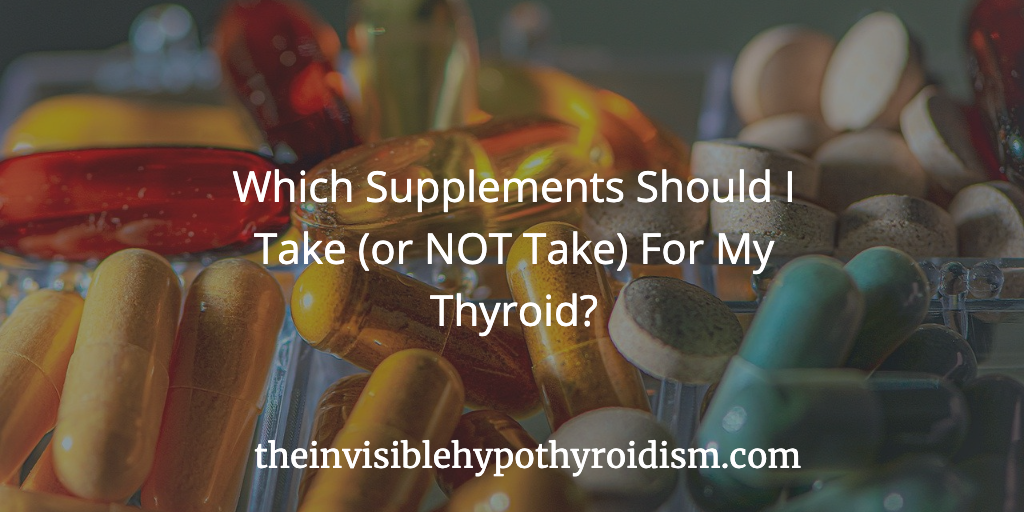
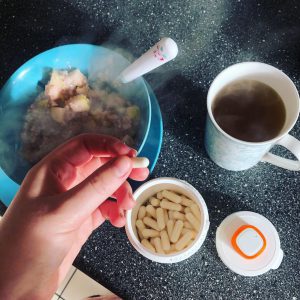
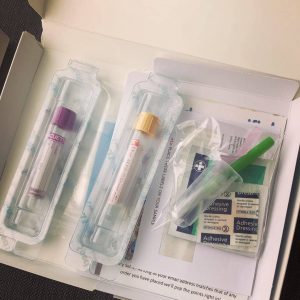
 The book
The book 